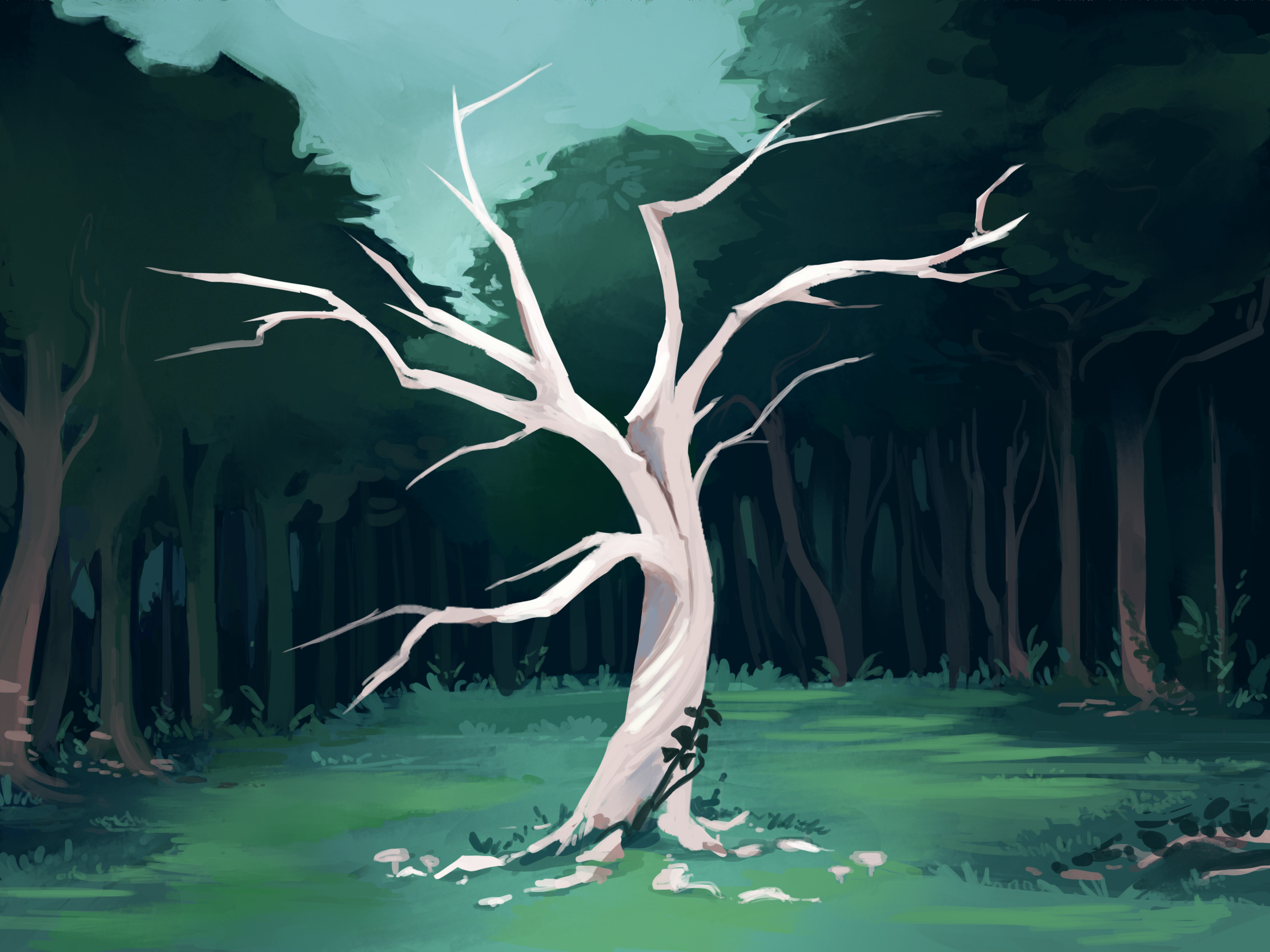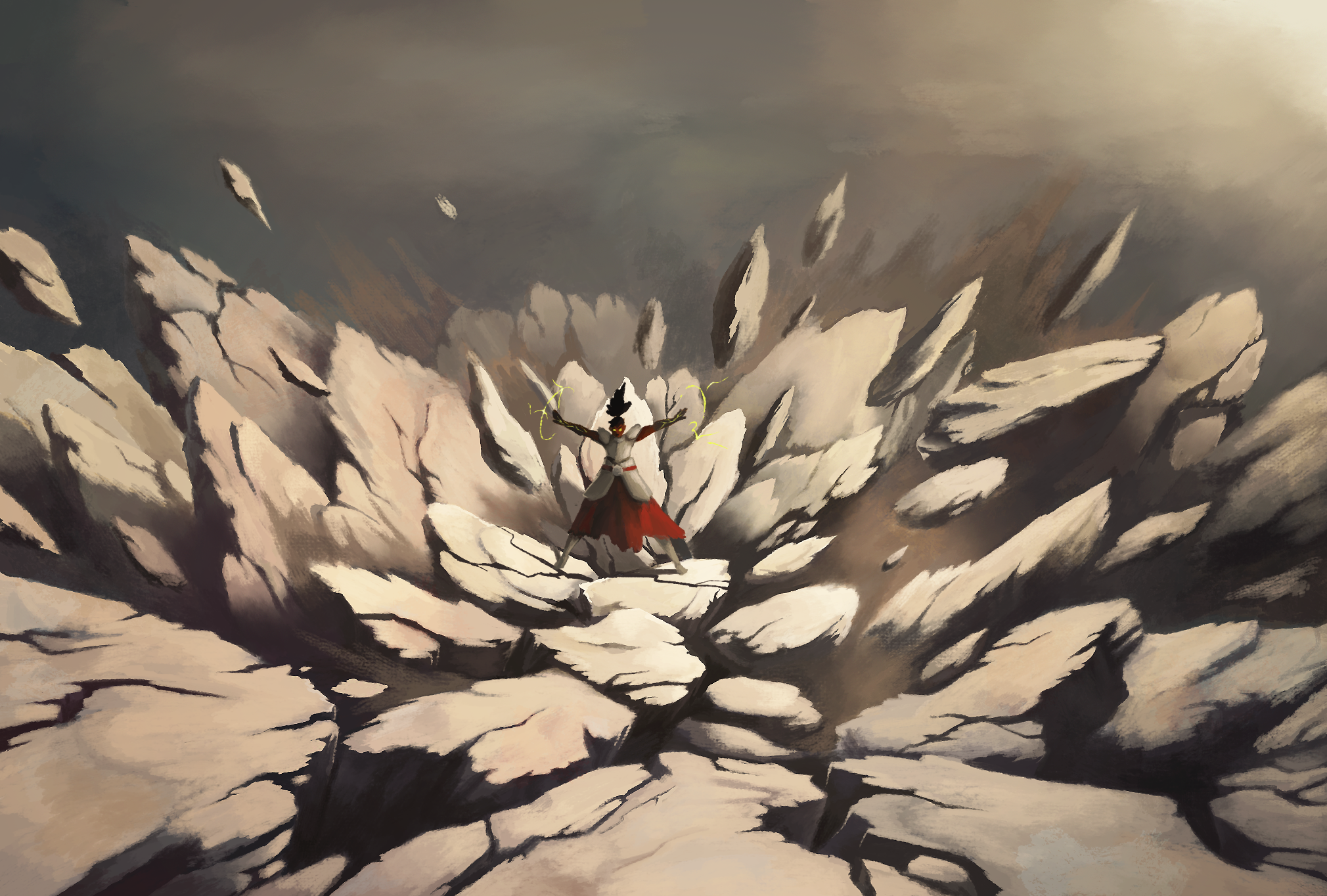Reduce randomness, February 17, 2020
Hey Mages !
Here we are again with a new post that will tackle a huge subject in card games: Randomness.
Reduce it, but not remove it:
We decided to reduce randomness in the game, but not to remove it completely. Even if it has its downsides, randomness still has some incredible perks that makes it a very interesting game mechanic.
It calls for the player’s ability to adapt, it brings the element of surprise and breaks the monotony that deterministic rules can bring. So we kept a bit of randomness, just by the fact that you shuffle your deck at the beginning of the game and draw your spells randomly. A 100% deterministic system wouldn’t have been very thrilling.
How to “reduce” randomness?
We took many decisions to allow players to get rid of randomness much more than in other existing TCG.
The deck building rules
First, the repartition of cards in a deck. The usual deck building rules can vary a bit between games (especially if you also count all of the different game formats of the various licenses). If you consider the standard formats, you get:
- Either 40 cards decks that may contain 3 copies of each individual card. Their drop rate in the deck is then 7.5%
- Or 60 cards decks that may contain 4 copies of each individual card. Their drop rate in the deck is then 6.66%
In Mage Noir, the decks are 40 cards decks that may contain 4 copies of each individual card. You guessed it, their drop rate is then 10%. This is actually a big change that stabilizes the player’s draws a lot.
The starting hand
There are lots of ways to handle your starting hand in all of the various TCG. We decided to give the player an actual choice when he choses his starting hand rather than making him gamble.
In Mage Noir, you start the game with a simple choice. The player draws two hands of 5 cards that he can observe. He can choose the one he’d prefer to start the game with. The other hand is then shuffled back into his deck.
This allows the player to choose his beginning playstyle, to adapt to his opponent (if he already knows what his deck contains) and to avoid harsh game starts as much as possible.
The relation between draws and resources
In Mage Noir, you choose your resources before drawing. this greatly reduces the impact of randomness during your draw.
First, the fact of choosing your resources yourself removes a lot of luck factor since you’re planning what you can play yourself. Moreover, removing the resources from the deck prevents the game from slowing down with cards that don’t do any action.
All of this paired with our deckbuilding rules greatly reduces the impact that luck can have on the ability to perform actions.
Second, choosing your own resources before drawing allows for much more intelligent turnarounds than just a plain topdeck.
We all know this moment when you have your opponent under pressure, you’re ready to give him the final blow on your next turn. His turn starts, he draws, and looks at you with a big triumphant smile…
No! Out of the 35 cards he could get, he drew the single one able to counter you! What a nightmare.\

But you’re not done yet. You still have a turn left. Before you draw you think for a moment and say to yourself: “Hummm, I only see one card that can get me out of there…”.
You take your Mana accordingly, draw the exact card in question and win against your opponent. This wasn’t pure luck, this was a beautiful victory! You predicted and planned your only way out of this. You got true nerves of steel!

Why reduce randomness?
There are numerous reasons. Even if it is very important to spice up the game a bit, it is a tool that needs to be carefully balanced to give an optimal gameplay experience to the players.
It is also a tool that needs to be toned down if you want your game to reward the player’s skill. Which is a very important point when you plan your game to be played competitively, like Mage Noir.
Tactical block
One effect of having too much random, very linked to Trading Card Games, is the impossibility to make your tactic work. Preparing a smart and creative combination of cards is exciting. But never getting the occasion to make it work because of randomness is a rather unpleasant experience. We wanted to be sure that players get the occasion to experience the playstyles they prepared.
Unpredictable
Also, a great part of randomness removes a lot of previsions and calculations from more experienced players. It then becomes impossible for players to plan their moves in advance, the state of the game being completely changed from one turn to another in an unpredictable way.
This precise point goes against making a competitive game, like Mage Noir. A competitive game will reward players with sharp minds that can grasp the game’s state in the near future as well as in the long run.
Conclusion:
We used lots of tools to reduce randomness. The starting hand, deckbuilding rules and even the game’s resources. But even if its reduction is an asset, we thought it was important to keep a reasonable part of randomness, to have the most exciting game experience.
See you soon for another game design talk Mages, take care of yourself.